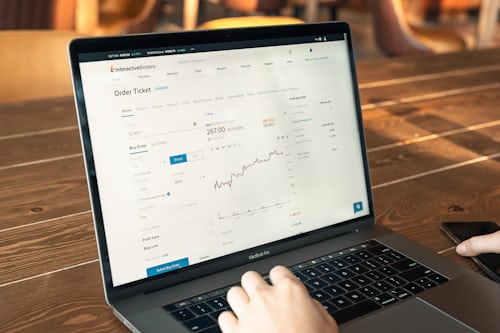In addition, it is now possible to invest in other precious metals, fossil fuels and agricultural products via CFDs and to participate in price fluctuations.
Traders should know the customs and peculiarities of the commodities market and understand the instruments on which CFDs are based.
A glance at the brief information provided by the financial market data portal Bloomberg is unlikely to be comprehensible to those who are learning about the commodity markets for the first time. The commodity markets are characterised by a multitude of indices, which - to top it off - are associated with brand names and are supposed to measure the development in different segments of the global commodity market with different priorities.
Since these indices usually form the basis for CFDs, knowledge of their composition is essential. This also applies to futures on individual commodities.
How are commodities quoted?
First, we will explain in which units commodities are quoted and what these units mean. All commodities worldwide are quoted in US dollars.
For gold and oil in particular, prices are often quoted in euros. However, these are merely conversions of the world market price for the commodity at the current exchange rate.
There are two types of crude oil in the Bloomberg price table: Crude and WTI. Crude is a light North Sea grade, WTI (West Texas Intermediate) is a light, sweet American grade with low sulphur content. The oil price is quoted in US dollars per barrel. One barrel is equal to 159 litres.
Gasoline is petrol. The suffix RBOB refers to the nature of the gasoline and abbreviates the English designation "Reformulated Regular Gasoline Blendstock".
Since a date is indicated in the "Contract" column, this is a forward contract, as is the case with the two oil contracts. However, gasoline is not quoted in barrels but in gallons.
Nature Gas - natural gas - is quoted in MM WTO. One MM WTO speaks 1 million WTO and thus about 273 kWh. Heating oil, on the other hand, is quoted in gallons.
Among the precious and industrial metals, copper is the only one that is not traded in troy ounces but in pounds. It is an Anglo-American pound that corresponds to about 0.454 kg.
Precious metals are quoted exclusively in troy ounces. This is an old British unit of measurement. One troy ounce is equal to 31.103 g. One of the gold prices and the platinum price does not indicate a forward date for the contract. These are spot market prices.
CFD on agricultural commodities
The agricultural commodities shown here are exclusively futures contracts. It should be noted that "corn" means maize, "wheat" is wheat and live cattle is live cattle.
Cocoa is quoted in metric tonnes, so 1 tonne is equal to 1000 kg. Grain is quoted in bushels, a unit of measurement. It is a kind of dry mass of the respective grain. A bushel of maize corresponds to about 25.4 kg, a bushel of wheat to about 27.2 kg.
The major commodity indices
There is interesting asumption on commodity indices CFDs both in native language and traslated: CFD ส่วนใหญ่ของสินค้าโภคภัณฑ์อ้างถึงอนาคตของสินค้าโภคภัณฑ์เดียวหรือดัชนีสินค้าโภคภัณฑ์ที่สําคัญอย่างใดอย่างหนึ่ง. ในทุกกรณีดัชนีเหล่านี้เป็นดัชนีแบบกว้างที่ติดตามส่วนต่าง ๆ ของตลาดสินค้าโภคภัณฑ์ใน รีวิว Exness ด้วยกัน. ดัชนีทุกประเภทจะคํานวณเป็นดัชนีย่อยสําหรับแต่ละภาคส่วน.
Most CFDs on commodities refer either to a future on a single commodity or to one of the major commodity indices. In all cases, these are broad-based indices that track different segments of the commodity market together. All index types are also calculated as sub-indices for individual sectors.
The weightings are determined, among other things, on the basis of the global trading volume.
The UBS Bloomberg CMCI also covers a broad range of commodities. CMCI stands for Constant Maturity Commodity Index, which translates roughly as "Constant Maturity Commodity Index". This is intended to enable investors to use maturities in a more targeted manner and avoid rolling losses.

